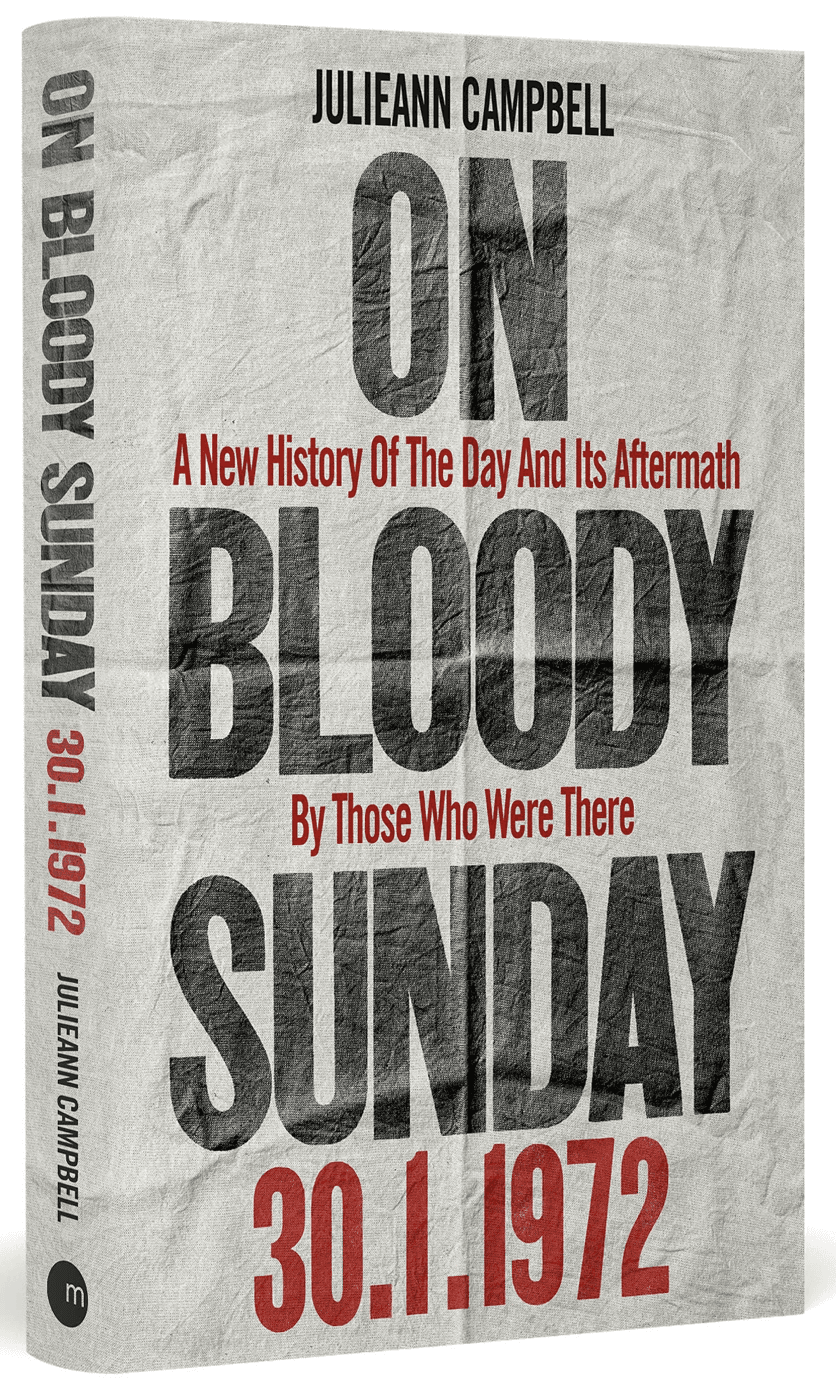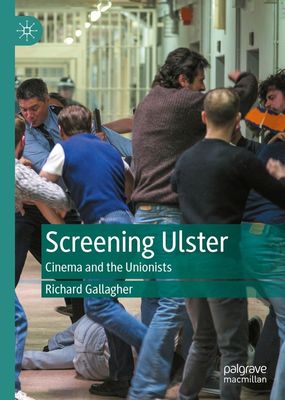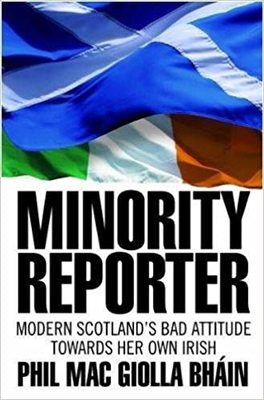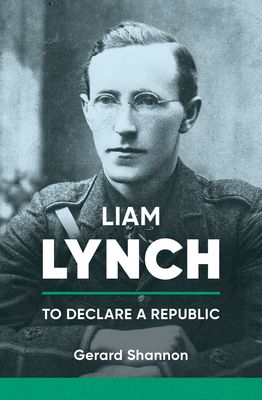Review of On Bloody Sunday: A New History of the Day and its Aftermath by Julieann Campbell (Monoray, £16.99)
I WAS in a foreign country, known as Britain, when soldiers shot 26 unarmed people in Derry on the 30th January 1972, killing 13 of them that day. Another died four months later. It is impossible to avoid the cliché about the effect of those murders. It was, truly, a watershed event.
After Bloody Sunday, everything changed. For the bereaved, for the relatives of the wounded, for the people of Derry and for the entire population of the six counties. It was an epiphany for me, aghast at the deaths, horrified by the paratroop regiment’s criminal behaviour, appalled at the Heath government’s insouciance, astonished at the Widgery tribunal’s whitewash, and, as a journalist, disgusted at the British media’s refusal to report the facts, let alone treat mass murder with appropriate outrage.
My uncle Paddy’s last words were reportedly: “Don’t let me die on my own.” Which he did. Far from his six children, face down in the street on Bloody Sunday. This is the most personal column I’ve ever written. I hope I did Derry and Paddy justice. https://t.co/nUbLVw4hTL
— aoife moore. (@aoifegracemoore) January 29, 2022
So, six days after the slaughter of Derry’s innocents, I joined a march in London aimed at placing 13 coffins on the doorstep of 10 Downing Street. The authorities were never going to allow us to embarrass the prime minister and a riot broke out. It was a sign of things to come: the British state was determined to cover up what its army had done.
Year upon year, using its considerable powers, it did all it could to prevent the truth from emerging. But the campaigning families and their supporters refused to back down and, as we know, they were finally vindicated when the Savile tribunal concluded in 2010 what had been denied for so long: soldiers had committed murder and had subsequently lied about it. All this was done with the connivance of their military and political masters.
That’s the overarching story, and one we know all too well. But putting the politics to one side, what mattered, and still matters, are the people who died and the people who survived. They have not been overlooked, of course, but they have not been looked at closely enough. Now, in this remarkable book, Julieann Campbell has given them the chance to speak, instilling history with humanity. We learn of their initial grief and anger and then, as the years pass, the way in which that grief and anger was aggravated by the stone-walling of the British establishment.
Never forget, bloody Sunday,,☘☘☘☘🙏🙏🙏🙏🙏🇮🇪🇮🇪🇮🇪🇮🇪🇮🇪 pic.twitter.com/3BXBY4zo5S
— Pictures of Ireland (@RichardofEire) January 22, 2022
Campbell’s uncle, Jackie Duddy, was one of the victims, shot dead aged 17, weaver, boxer, lover of spaghetti westerns, and courting a girl in secret with a little help from his sister. Through Campbell’s interviews with sisters, brothers and his closest friend, we are able to picture him. Not a politico. Not a warrior. Just a happy-go-lucky lad with a life before him.
Similarly, intimate portraits of other victims emerge in the tapestry of tears woven by Campbell. An oral historian, she has used her considerable skills to give a voice to those who were disbelieved and, for so long, were denied one.
On the face of it, her method was simple. She recorded interviews with a range of people connected to that awful day of mayhem and murder. Clearly, when dealing with the bereaved relatives, she did so with empathy because their painful testimonies are the hardest to read.
The real genius of Campbell’s technique lies in the way in which she has arranged the material. By breaking up individual interviews into short segments, she creates a chronological unfolding of the tragedy interspersed with other relevant facts and incidents.
It is so well done, it’s as if we are there. Joe Friel, shot in the face, recalls the crowd around him “squealing, crying, roaring and shouting.” Danny Gillespie, hit by a bullet in the head, remembers “the jelly-like blood running across my face and into my eyes.” Paddy Walsh tells of praying over the body of Paddy Doherty with “the shoosh of bullets going over my head.” Sophia Downey, sister of another victim, 17-year-old Michael Kelly, recalls how, while fleeing the bullets, a man pulled her and her sister to safety into a trench on a building site.
When the shooting stopped, the girls walked home, unaware of their brother’s death. What is striking, and poignant, about these memories is the mixture of the mundane and the morbid. Geraldine McBride’s recollection – “the craic was ninety and we were marching and singing and chatting away” – is counterpointed by Jimmy Toye telling of Hugh Gilmour’s “intestines bulging out beneath his shirt.”
Toye had just turned 16. Gilmour, an apprentice motor mechanic, was killed within yards of the Rossville Flats, where he lived. He was 17. “He always brought my mother home a quarter of dolly mixtures every Friday,” said his sister, Olive Bonner.
These juxtapositions give the developing narrative an authenticity and an integrity. The interviewees have probably told their stories many times privately, but the straightforward way they speak to Campbell gives no hint of embellishment. This, truly, is how it was.
Aside from the heartbreaking memories of that terrible day, it is also an eloquent testimony to the fortitude of the families who fought so long for justice. When it arrived, they registered their astonishment as they witnessed Britain’s Tory prime minister, David Cameron, giving the official apology for the army’s massacre of 14 unarmed, innocent people.
“My jaw just dropped,” said Kay Duddy. It was “fantastic”, said Mickey McKinney. “It was worth waiting for,” said Kevin McDaid, “but it should have happened years and years ago.”
That celebratory reaction gave way to dismay when it was announced that no-one was to be prosecuted for the crime. But campaigners who fought against seemingly impossible odds to reveal the truth, are not giving up. In John Kelly’s words: “As long as we’re able to walk, we’ll go after them.”
Some people, however, have learned nothing over the course of 50 years. As I came to the end of this review, I noted with sadness news of Parachute Regiment flags being flown on lampposts in Unionist areas of Derry. This is not just disrespectful and provocative, but hateful. Is there no compassion at all within the loyalist community?






